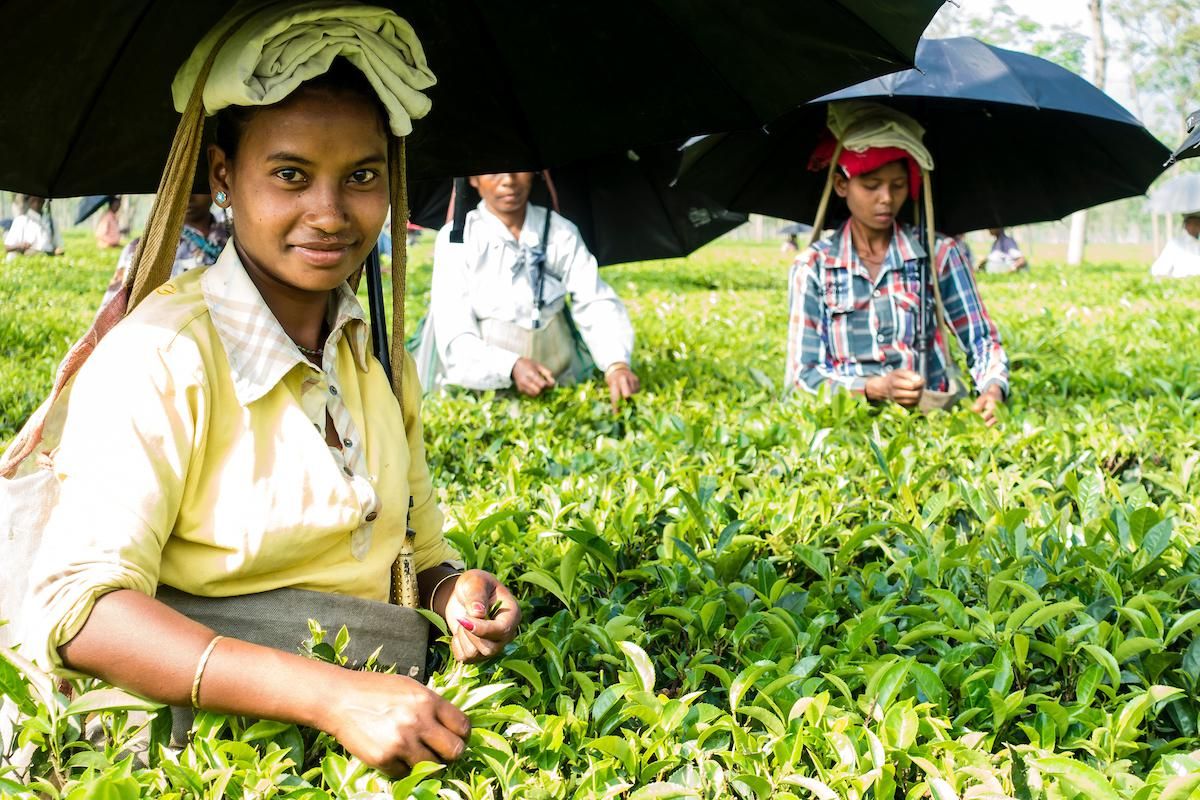20 April 2017
Suppliers
Turmeric, Ginger and inspirational Tea estates in India
Our Supplier Relationship Manager Matt Richards has been visiting some of our Indian suppliers who we have been working with for over 15 years, as well as meeting some new faces. Matt tells us about his visit.
"I’ve been to India twice in the last three months, to ensure that I’m able to see the harvest and processing of key species at various times. In January 2017 I went to see a supplier who we have worked with for 15 years, overseeing production of Ginger and Turmeric. The harvest began in December so I was keen to work with them on the quality of the processing. I also visited a new supplier that is doing excellent work in Kerala with small-scale farmers – again looking at Turmeric and Ginger. I was pleased to see a good harvest and how quickly the fresh roots are turned into final product – making sure that all the goodness of the plants is retained.
I headed back to India this April 2017, which is when the first tea plucking of the season happens in North East and North West India. What really struck me on this visit is how similar good organic tea growing is to good organic herb growing. The main difference is that tea is a perennial, being in the same spot for up to 100 years in a lot of cases (planted by the British in this case). I had been told by some in the tea world that it was a constant challenge for organic tea growers to get enough nutrients to the plants without being able to use crop rotations - and as a result yields can suffer in organic tea. But the estate we are working with in Dooars showed me the opposite - it was very inspiring!
The scale and diversity of composting techniques was astounding. Using cow manure and vegetative matter to create vast quantities of compost means there are more than enough nutrients to feed their bushes. There are also plans to build a pioneering FairTrade project by setting up a cow dairy on the estate – adding an extra source of income for villagers and another source of valuable manure for composting.
Since taking over the tea estate 15 years ago there has also been a constant programme of rejuvenation of bushes - grubbing up old plants and using this as an opportunity to start fresh soil management. Firstly they grow green manures for 18 months, which is then dug in. Then the compost is dug in trenches and leguminous plants are grown between to aid soil structure and nitrogen fixation – giving the young tea bushes a good start. The mantra here is ecological balance and I found this principle ingrained. Instead of using cuttings (normal tea planting practice) to create new planted areas they mainly grow from seed. The roots go deeper and the bushes grow stronger meaning they are able to adapt to their environment better (and become more resilient to climatic changes). The tea bushes are also allowed to go wild in areas that are left for a long period of time before harvesting to encourage a natural ecological balance and therefore keep pests in check. This was clearly working - walking through young plantations buzzing with insects and birdlife, the plants looked incredibly healthy and wild.
I can’t wait to receive samples of the early spring and summer flushes – they’ll taste all the better for knowing how well they are grown!"


